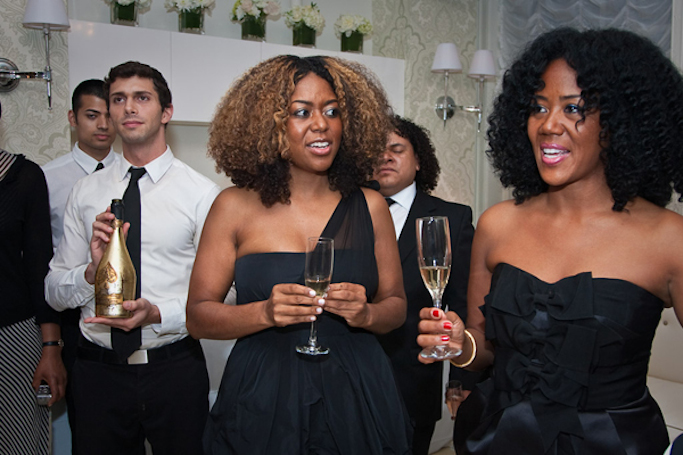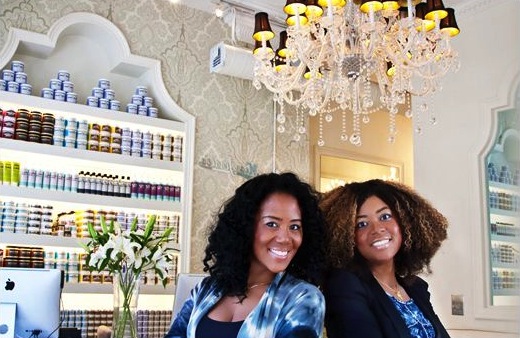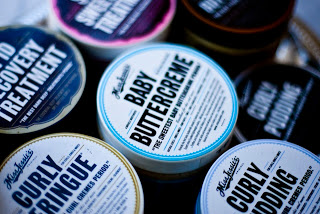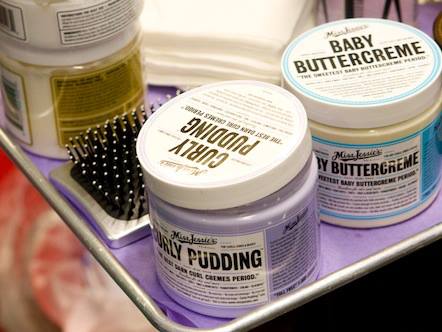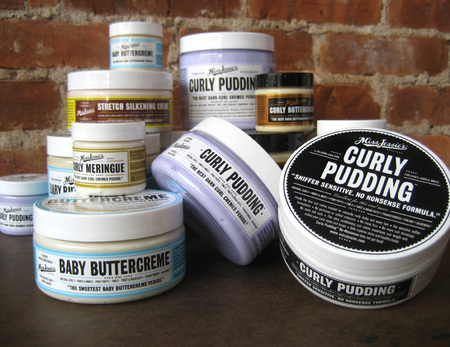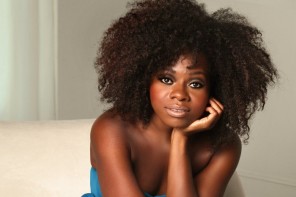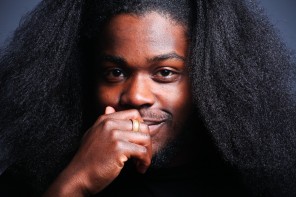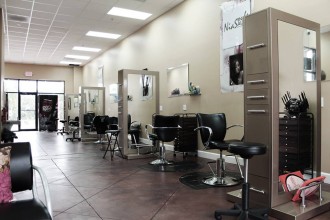Constance C. R. White wrote a great article profiling the sisters behind Miss Jessie’s. Miko and Titi Branch are co-founders of the Miss Jessie’s empire and OZY.com has the scoop on what inspired them to start their business, how they plan to expand and what keeps them motivated…
Not that long ago, hairstylist Miko Branch was a new mother who no longer had time to perm her textured hair every six weeks. So she began letting her hair, a vibrant mass of black curls, follow its natural inclination. Back in 2000, a black woman sporting a natural look was rarer than hen’s teeth, but Miko was busy and didn’t give her hair much thought.
But customers at her salon noticed, and a lot of them liked what they saw. “They wanted to get this look,” said Miko.
That marked the beginning of an upward trajectory that has made sisters Titi and Miko Branch, co-owners of Miss Jessie’s, two of the most important players in the growing natural-hair movement. They named their company after their paternal grandmother, Jessie Branch, but don’t let the folksy name fool you. Overall, the U.S. hair-care market is a $7 billion market ruled by multinational corporations like L’Oreal and Proctor and Gamble, according to Businessweek. The black hair-care market is $684 million and growing, with “natural the new normal,” according to research firm Mintel, which says black women are more likely to spend top dollars on their hair.
The look – which flourished in the ’60s and ’70s — has been adopted by stars like Viola Davis, Solange Knowles, Debra Lee, Sheila Johnson and Esperanza Spalding. Black women have a complicated relationship with their hair, battling internal and external pressure to conform to prevailing beauty standards. Recently a school in Ohio tried to ban little girls wearing Afro-puffs and braids, and last year a weather reporter was fired after responding to viewer criticism of her short Afro. Nonetheless, the grassroots natural movement has caught on and spawned a number of new product lines. Players range from boutique companies like Mixed Chicks and Kinky-Curly to the Truly Relaxed and Natural collection from Pantene. And, of course, Miss Jessie’s.
Black women have a complicated relationship with their hair, battling internal and external pressure to conform to prevailing beauty standards.
Black women have a complicated relationship with their hair, battling internal and external pressure to conform to prevailing beauty standards.
The daughters of an African-American father and a Japanese-American mother, the Branch sisters run a chic salon in New York and are an arresting, glamorous pair who have become their own best muses for natural hair. They’ve had to be. Titi said she actually balked “when Miko came up with this idea of let’s focus on natural hair .”
”I really didn’t get it,” she said recently as she and Miko sat in their glistening Soho salon, all white upholstered chairs and opulent chandeliers. “Most of our business was still straightening hair.”
Dressed in tight red jeans and high heels, Titi sports a glorious curly-coily ’fro with brown and blond gradations and looks like someone comfortable taking risks. But she also has a consumer economics degree from the University of Maryland, and the idea of doing something radical like natural hair seemed like a huge leap.
Miko is seemingly the more conservative of the two. She’s in a demure black dress and wears her hair in thick, wavy black curls that fall past her shoulders. But she has a degree from the Fashion institute of Technology and knows a fashion movement when she sees one, so she convinced her sister to take the plunge.
The timing was right and their salon business began to expand, but finding the right potions to use on customers’ natural tresses was a problem. They solved it by creating their own line of Miss Jessie’s products with delicious names like Baby ButterCreme and Curly Pudding. Today the company offers a range of products, from cleansers, conditioners and stylers to combs and T-shirts.
Titi does most of the initial development, trying various combinations and mixes, which they often test on customers in the salon. The immediate feedback and a built-in marketplace has helped drive growth.
The business grew steadily for five or six years. And then a few yeas ago, Target invited them and a few other natural hair lines to sell in their stores, aided by prominent displays. What started as an eight-week tryout in 400 stores quickly expanded. “Target was a pivotal point,” said Miko. ”Target is when we went mainstream.”
Miss Jessie’s is now in about 2,500 retail outlets and is set to double that number next year, said Titi. HarperCollins just signed the sisters to a book deal to tell the story of how they built Miss Jessie’s and to offer hair tips.
It was important that we showed that natural hair could be sexy. That it looks good.
“Black hair-care books have sold extremely well historically, ” said Tracy Sherrod, the top editor at HarperCollins who brokered the deal. A recent title, Better Than Good Hair, by Nikki Walton of the popular blog Curly Nikki, sold 40,000 copies within weeks, she said.
It was important that we showed that natural hair could be sexy. That it looks good.
With their hair careers, Miko and Titi are following a time-honored path to success in the black community. Among the most famous practitioners was Madam C.J. Walker, one of America’s earliest, self-made, female millionaires. The Branches grew up with a fondness for doing hair, and after Miko opened her first salon in Brooklyn, Titi, who had a busy life as a successful beauty agent, decided to join her. Even now, Walker is their inspiration.
“We have tried to frame our business and our approach after her,” said Miko.
“We read the books her granddaughter writes,” added Titi.
But the Branches have something Mrs. Walker did not: the Internet, which has been key to growing their company. Early on the sisters knew that if they wanted to expand they would need to address the complex relationship black women have with their hair
“It was important that we showed that natural hair could be sexy. That it looks good,” said Titi.
They put copious photos on their website of attractive, stylish women with natural hair, many of them black but some white or interracial. They showed riveting before and after pictures of women going from processed to natural, aiming at the broadest possible market by appealing to any woman of any race with curly hair. And they provided soothing reassurance for women who experience deep, conflicting emotions because their hair doesn’t look like the dominant standard.
“I try to say focused on hair,” said Miko. “We can help her with her hair. But it’s true that in addition to doing hair, we are helping to make people happy.”
The upcoming book could help raise the profile of these two sisters whose competition includes the much bigger Carol’s Daughter. That company is backed by celebrities like Jada Pinkett Smith and Mary J. Blige and it too has gone after the multicultural market.
But in the world of natural hair care, the Branch sisters may be the bigger stars.
“I get so inspired when people meet us,” says Tiki. “It’s just a hair product but to them it’s so much more. It has such an impact.”
Reposted from OZY.com
Photo Credit: Talking Make Up



